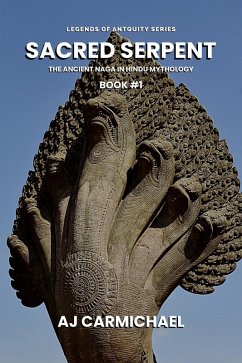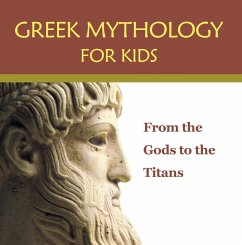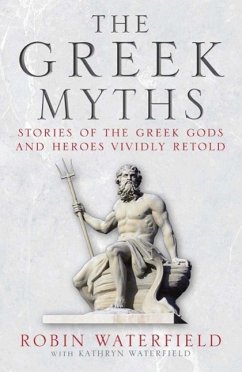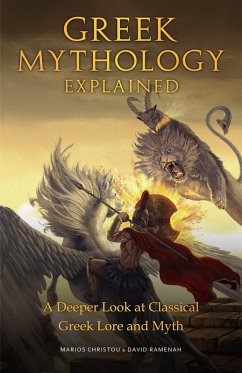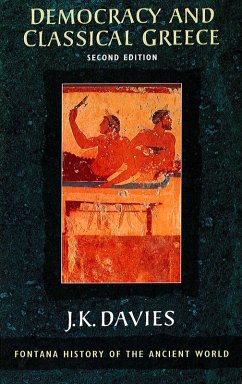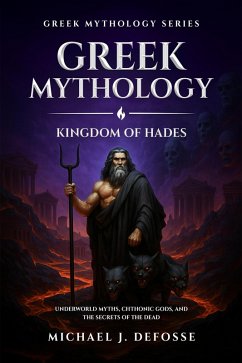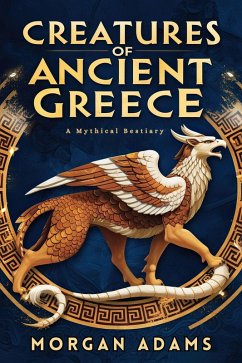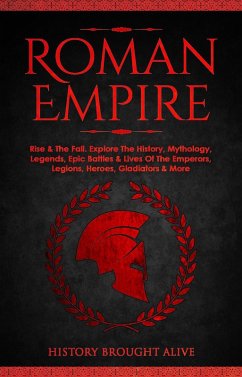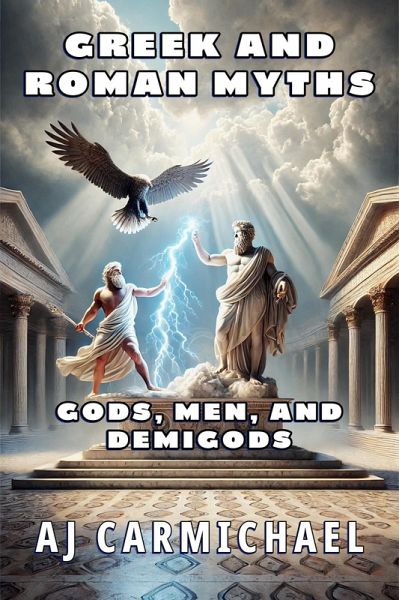
Greek and Roman Myths: Gods, Men, and Demigods (Legends of Antiquity, #4) (eBook, ePUB)

PAYBACK Punkte
0 °P sammeln!
For thousands of years, the stories and traditions of ancient Greece and Rome have thrilled humanity. These rich in drama, heroism, and divine contact stories offer more than just entertainment value. They offer insight into the ancient world by reflecting their founders' and disseminators' ideas, values, and societal systems. Their impact shapes Western civilization's collective consciousness, philosophy, art, and literature going beyond ancient times. Examining its historical foundations, universal themes, and repercussions on ancient and modern society can help us see why Greek and Roman my...
For thousands of years, the stories and traditions of ancient Greece and Rome have thrilled humanity. These rich in drama, heroism, and divine contact stories offer more than just entertainment value. They offer insight into the ancient world by reflecting their founders' and disseminators' ideas, values, and societal systems. Their impact shapes Western civilization's collective consciousness, philosophy, art, and literature going beyond ancient times. Examining its historical foundations, universal themes, and repercussions on ancient and modern society can help us see why Greek and Roman mythology is so fascinating and significant. Mythology served as a tool for clarifying the unexplainable. Before scientific understanding developed, stories provided ancient societies a framework to explain existential puzzles, natural events, and the cosmos. For the Greeks, the thunder of Zeus and the choppy waves of Poseidon represented uncontrollably strong energies that made sense in the narrative. Likewise, the Romans accepted and changed these stories to fit their pragmatic viewpoint, usually adding moral and civic lessons. The development stories of both civilizations show a great need to understand life. The initial state of chaos, the amorphous nothingness from which all creatures sprang, marks Deities like Uranus and Gaea, whose marriage best captures the connection between sky and earth, supervising the ordered universe that arose from this anarchy.
Though fictional, these stories mirror fundamental human concerns about beginnings, identity, and purpose. These stories were preserved and shared in great part by the oral tradition. Recited epic stories, nomadic bards like Homer guaranteed their survival over decades. Later canonized as the literary works of Hesiod, Virgil, and Ovid provide a window into the cultural Psyche of their day. The shift from oral to written tradition emphasizes how flexible these stories are since they were changed to fit several audiences and settings. Greek and Roman mythology's examination of universal subjects that cut across time and culture helps to explain why it still intrigues. The conflicts between gods and humans, the search for heroism, and the results of hubris mirror basic features of human life. These tales probe the subtleties of morality, authority, and the interaction between fate and free will. The gods are profoundly human in their shortcomings and want, even if they are immortal and strong. Often driven by envy, passion, and the urge for control, Zeus, for example, epitomizes both absolute authority and human weakness. His contacts with people draw attention to the unstable balance of power and the consequences of challenging divine will. Often acting to great lengths to uphold her reputation and punish adultery, Hera, the queen of the gods, stands for loyalty and retribution. By using these figures, mythology offers a mirror reflecting human behavior, accentuating virtues and vices in still relevant ways.
Though fictional, these stories mirror fundamental human concerns about beginnings, identity, and purpose. These stories were preserved and shared in great part by the oral tradition. Recited epic stories, nomadic bards like Homer guaranteed their survival over decades. Later canonized as the literary works of Hesiod, Virgil, and Ovid provide a window into the cultural Psyche of their day. The shift from oral to written tradition emphasizes how flexible these stories are since they were changed to fit several audiences and settings. Greek and Roman mythology's examination of universal subjects that cut across time and culture helps to explain why it still intrigues. The conflicts between gods and humans, the search for heroism, and the results of hubris mirror basic features of human life. These tales probe the subtleties of morality, authority, and the interaction between fate and free will. The gods are profoundly human in their shortcomings and want, even if they are immortal and strong. Often driven by envy, passion, and the urge for control, Zeus, for example, epitomizes both absolute authority and human weakness. His contacts with people draw attention to the unstable balance of power and the consequences of challenging divine will. Often acting to great lengths to uphold her reputation and punish adultery, Hera, the queen of the gods, stands for loyalty and retribution. By using these figures, mythology offers a mirror reflecting human behavior, accentuating virtues and vices in still relevant ways.
Dieser Download kann aus rechtlichen Gründen nur mit Rechnungsadresse in A, B, CY, CZ, D, DK, EW, E, FIN, F, GR, H, IRL, I, LT, L, LR, M, NL, PL, P, R, S, SLO, SK ausgeliefert werden.




